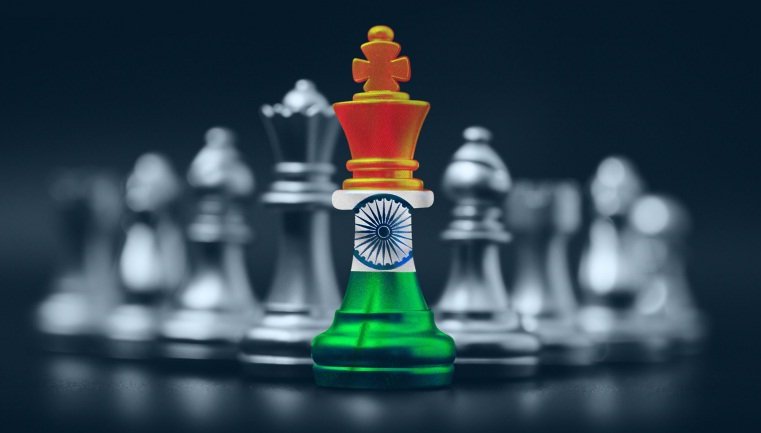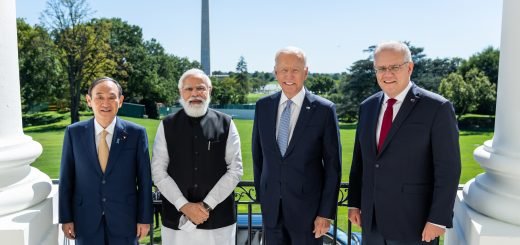A Review of Shiv Shankar Menon’s Monograph on “India’s Foreign Policy Strategy”

Shiv Shankar Menon’s monograph “India’s Foreign Policy Strategy” comes at a rather crucial time, when on one side Indian medical diplomacy is being hailed across the globe. On the other hand, the recent events at the LAC have shown how Indian foreign policy is devoid of a long-term vision and strategy. Menon states that the task of Indian foreign policy is to protect and secure India’s integrity, citizens, values, development and transformation of India into a modern nation. He further cements his argument by adding that until ideas such as exporting democracy, creating global public goods, seeking revenge, undoing partition and other such pursuits contribute to India’s national security, they are excluded from the Indian foreign policy strategy.
He talks about the British imperial policy of making India sea-blind and identifies the expansion of India’s interests in regions outside South Asia, like the South China Sea, as they remain critical to our economy. But fails to ponder upon the failure of the Indian post-colonial state to move away from the land centric and subcontinental defence strategy. Indian seafaring capabilities despite, its heritage of being historically a seafaring nation remain constrained, and India is not able to posture in the regions in which its interest lies using its navy. There’s no rejection of the fact that India has grown more when connected to the world instead of when in isolation, but in a global order in flux and confusion, where the US is retreating and the Chinese filling up the void, it remains vital for us to stay connected to the world and to ensure that, support our sea trade militarily either through the deployment of naval assets or agreements with nations vital to India’s interest.
While poor development of Human resource has remained a fact in India, Menon goes on to compare China and India on various social indicators including literacy and even income inequality but fails to take into consideration the fact that China is a one-party authoritarian state, and income inequality in China too remains rife. The official Chinese figures regarding the same are widely rejected as being highly inaccurate and following the party line. Talking about Strategy, the monograph rightly conveys the importance of ends, means and circumstances for the formation of a successful strategy, depending upon the goals and the means available. I believe, the lack of a long-term vision results in a condition where despite the availability of means, the foreign policy establishment and the political leadership suffer policy paralysis and often turn to be reactionary instead of following a proactive foreign policy strategy.
The strategic confusion Menon talks about is a fact, the world is in flux as it is militarily unipolar, economically multipolar and politically confused. The unpredictability of the US is real but the transactional nature being accorded to the Trump presidency is just an overt expression of the earlier US administrations’ covert transactional nature. Menon however when talking about the regional trade agreements, places too early the nail in the Globalisation’s coffin. TPP and RCEP have failed as regional agreements, one due to the US’ withdrawal and other due to Indian scepticism. His arguments regarding the rigidity of getting into alliances seem relevant, but about maintaining the so-called “Strategic autonomy” not so much.

If India in the current scenario fails to counter Beijing’s influence in the wider Indo-pacific region by using platforms such as Quad, it would forgo a golden opportunity and compromise its national interests. Further, India needs to focus more upon its periphery i.e. the South Asian region too. It has lost many opportunities historically and the Chinese have filled up that void, but today when India has the necessary capabilities and means to do so, it fails to deliver and hasn’t learnt to use them efficiently. Menon’s view that Pakistan is not a threat to India until it lets Pakistan exploit the fissures in Indian society is actually a very valid argument, as recently the Pakistani state has used multiple strategies to do the same by using offensive cyber warfare technologies. On the Chinese front, India’s rise will definitely be facing Chinese opposition, but that does not mean that the two nations cannot collaborate and bilaterally address certain long-standing issues. Again, as Professor C. Raja Mohan has pointed out, India needs to stop seeing its relationship with the US and China with a monochromatic lens. Coming back to India’s sea-blindness and interests in the South China Sea, India needs to do more than just signing defence cooperation pacts with ASEAN members like Singapore, Vietnam and the Philippines.
As professor Bharat Karnad has argued, India needs to bolster its defences and provide its armed forces with the latest technologies in the defence sector to better counter the Chinese and safeguard its interests in the region. As the Chinese navy’s presence in the Indian ocean increases, India is failing to control the choke points to its entry, like the British failed earlier, the only solution to which is actively indulging in defence partnerships, coupled with increased Freedom of navigation operations by the Indian navy.


















